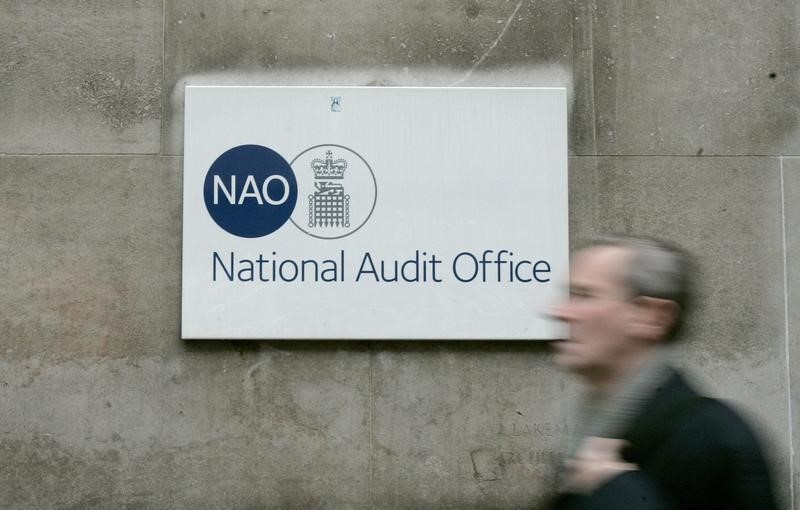LONDON (Reuters) - A British government scheme costing energy firms 3 billion pounds to help people save money on their bills and cut greenhouse gas emissions has not provided value for money, a parliamentary watchdog said.
The report, by the National Audit Office (NAO), said "neither we nor the Department (of Energy and Climate Change) can determine the impact of the schemes on fuel poverty", while the average cost of cutting just one tonne of carbon dioxide (CO2) was around 94 pounds, almost three times the cost of earlier schemes.
The country has some of the most energy inefficient homes in Europe and the measures had been expected to help the country meet its greenhouse gas reduction targets.
The government is also under pressure to curb rising energy bills with 2.3 million of Britain's 27 million households deemed fuel poor, meaning the cost of heating their homes leaves them with income below the poverty line.
Since 2013 power suppliers are required to install energy efficiency measures such as loft insulation in some of their most vulnerable customers' homes under the government’s Energy Company Obligation (ECO).
Several companies, including Centrica (L:CNA) and RWE’s (DE:RWEG) npower have long criticised ECO saying it is too expensive.
The NAO said ECO had cost energy suppliers 3 billion pounds from 2013 to 2015 and improved the energy efficiency of 1.4 million homes. By the time the scheme ends on 31 March 2017 it is expected to save 34 million tonnes of CO2.
Under a separate initiative, The Green Deal, the government offered homeowners loans to pay for green products such as energy-efficient boilers, but uptake was slow and the project was scrapped last year.

The NAO report said the scheme cost taxpayers 240 million pounds with just 14,000 homes benefiting from improvements.